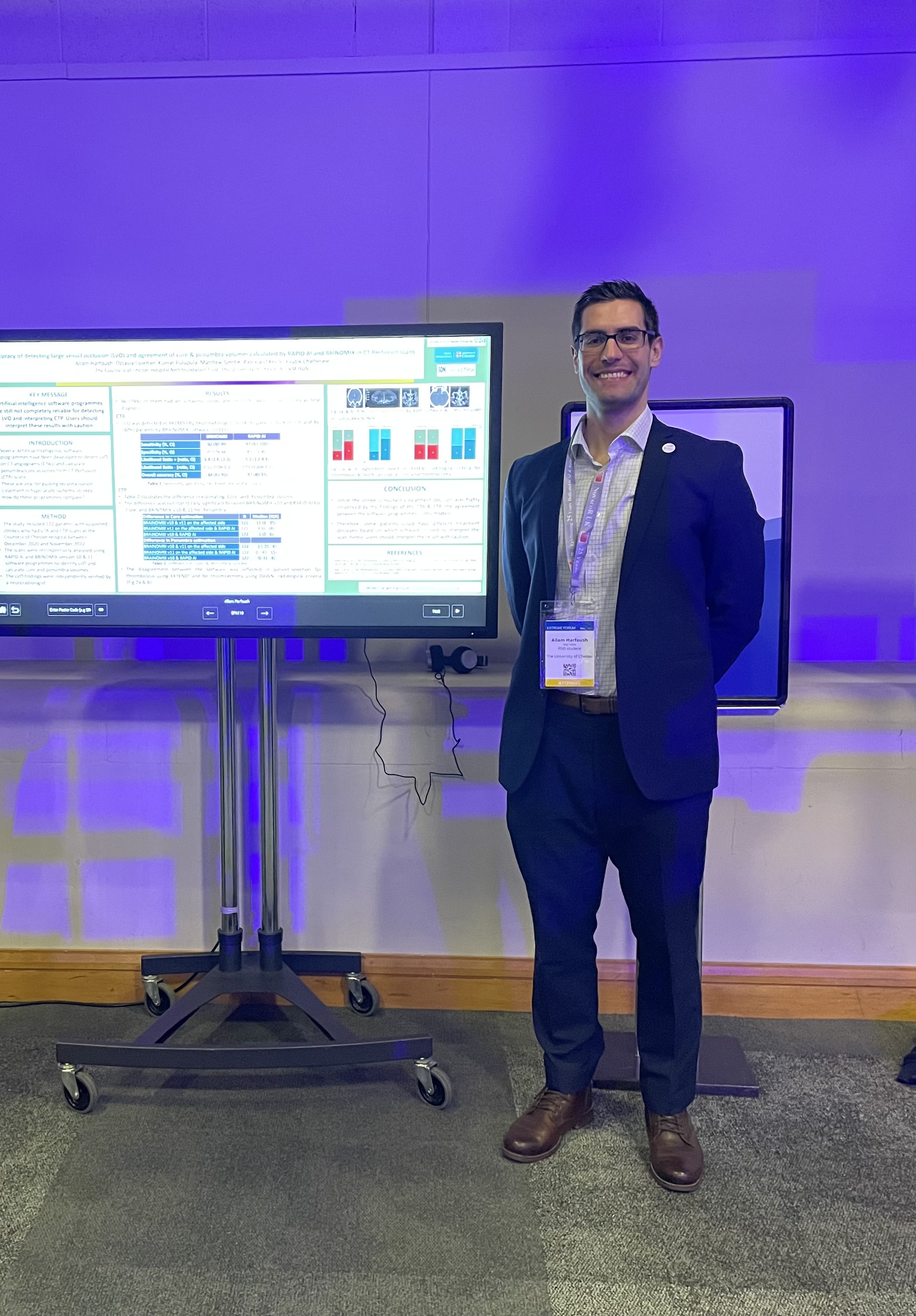The importance of the PhD journey
Faculty of Health Medicine and Society student, Allam, tells us about his research with stroke survivors and explains the importance of enjoying the journey to gaining a PhD.

Tell us how you got into postgraduate research.
Who says a simple observation can't become an interesting research field? That's how my journey began. As you continue reading, I'd like you to reflect on your last visit to the GP or the hospital. Did the staff efficiently address all your questions, or was there anything unclear?
Before pursuing my PhD, I worked as a physician, meeting various patients in the clinic. At the end of each appointment, we usually provide advice on how to lead a healthier life. During these discussions, I often questioned the clarity of my advice:
- Did I deliver the message clearly?
- What would I understand if I were in the patient's shoes?
These reflections made me curious about how people understand and act upon the same health information. I started exploring this less-studied area because clearer communication of simple health advice can make a big difference in how someone acts toward their health.
What is your research about?
Simply put, we’re working on supporting individuals who have experienced a stroke by improving their understanding, management, and coping mechanisms with the condition. We are integrating artificial intelligence (AI) into healthcare practices, with the help of healthcare providers, to establish effective communication and educational methods for stroke survivors.
If successful, this approach could improve stroke survivors' independence, help with better integration into the community, and maybe reduce healthcare costs.
This work has attracted interest from other healthcare sites in the UK and we are looking to extend these methods beyond Chester to benefit a larger population of stroke survivors.
Tell us something exciting about your research/ that could make a difference in the future.
My desire to make a difference in patients’ lives led me to join senior researchers at the Countess of Chester Hospital NHS Trust. Together, we worked on several impactful projects. One project assessed the validity of using artificial intelligence (AI) to analyse head and neck scans in comparison to human operators. Our findings showed that this technology could save valuable time in the diagnosis and decision-making processes.
Additionally, our team is working on developing a screening assessment tool for ambulance service staff to swiftly identify strokes in the community. This tool could substantially reduce treatment delays by ensuring quicker hospital referrals.
Our next project will assess the role of a skin-attached device in increasing blood flow to stroke survivors' brains, potentially reducing the size of the brain injury after a stroke. These projects could enhance healthcare efficiency and, more importantly, ensure timely treatment.
We presented these projects in Birmingham at the UK Stroke Forum, the largest stroke conference in the UK. Across four presentations, we shared our work and built connections with several researchers from around the UK. Simultaneously, we will present two of these projects at the European Stroke Organisation Conference in Switzerland in May 2024.
Moreover, we have successfully published a paper and submitted another, with two other manuscripts in their final stages before submission. These papers delve into the findings and implications of our projects, showing our dedication to advancing knowledge in this area.
Any advice to future PGR students, or any recent achievements?
I would say, “If you don’t enjoy the journey, you won’t enjoy the destination.”
Doing a PhD requires a lot of work and dedication over a long period of time, making it essential to enjoy the journey as much as the prize, which is “getting a PhD.” From my experience, I found that working on personal growth and developing new skills is very important. That is why I decided to gain more skills and expertise.
With my research commitments, I am actively engaged in teaching as a visiting lecturer, assisting postgraduate and undergraduate students in medical science. This engagement allowed me to obtain my Associate Fellowship with the Higher Education Academy (AFHEA). Additionally, I completed my membership at the Royal College of Physicians (MRCP-UK), which requires the completion of a series of advanced clinical assessments. I also gained membership in the British Educational Research Association (BERA).
Over the past 12 months, I have been invited to peer review four manuscripts in PLOS and SAGE journals, concentrating on research areas similar to our work. Simultaneously, to further enhance my skills, I joined a public speaking club, resulting in winning the title of “public speaking champion” in one of our competitions. Finally, as I recognised the value of mentorship, I provided guidance and assistance to several fresh graduates from Chester Medical School in planning their future careers.
Any final remarks?
I am only sharing these experiences to highlight the importance of stepping out of our comfort zone during this journey. Engaging in other activities alongside academic pursuits can nurture personal growth and help in gaining invaluable skills beyond just writing a thesis.
In the end, mental well-being is also important! I engage in sports I love, like cycling, boxing, table tennis, and hitting the gym. These activities are also great for socialising and meeting new people, as doing a PhD could be lonely sometimes.
If you would like to discuss any of this stuff, feel free to chat, or you can find me in the gym!
Allam Harfoush, MRCP(UK), MSc, AFHEA, PhD student in the Faculty of Health, Medicine, and Society.
Make sure to check out our MPhil/PhD Entry Requirements and our Undergraduate and Postgraduate options for studying at Chester.